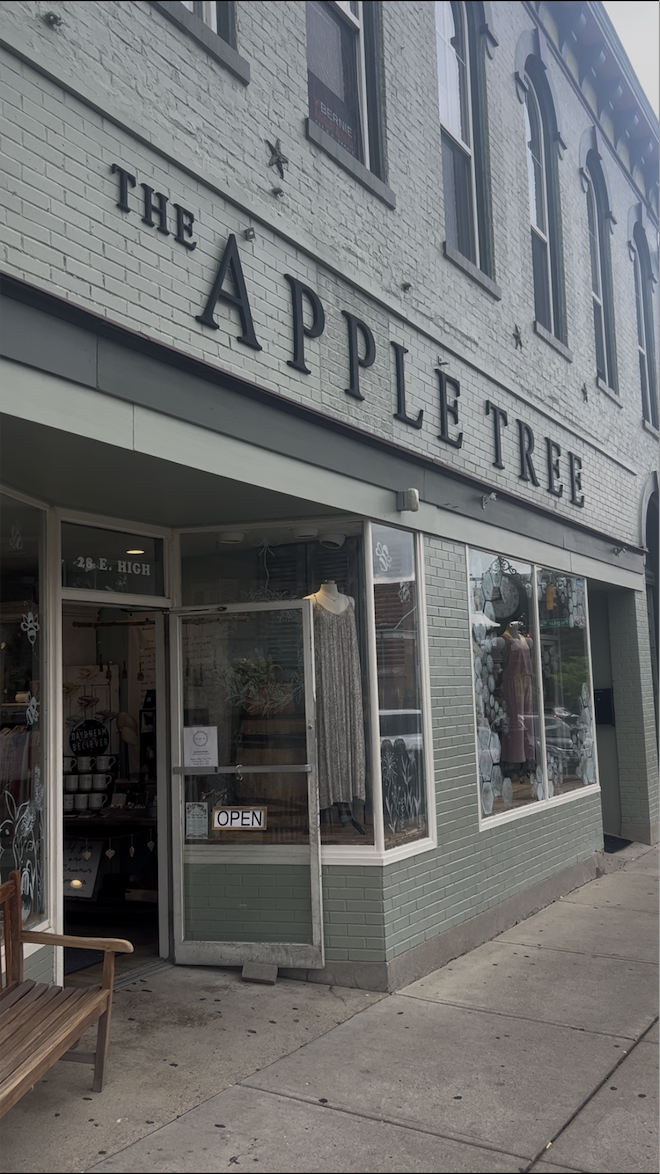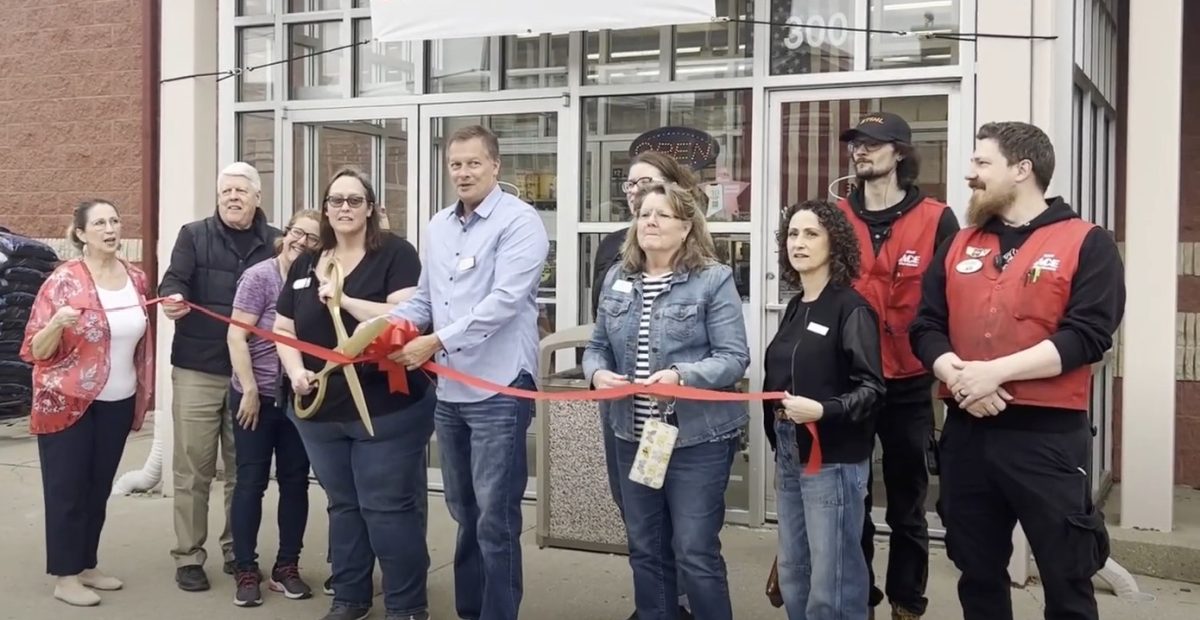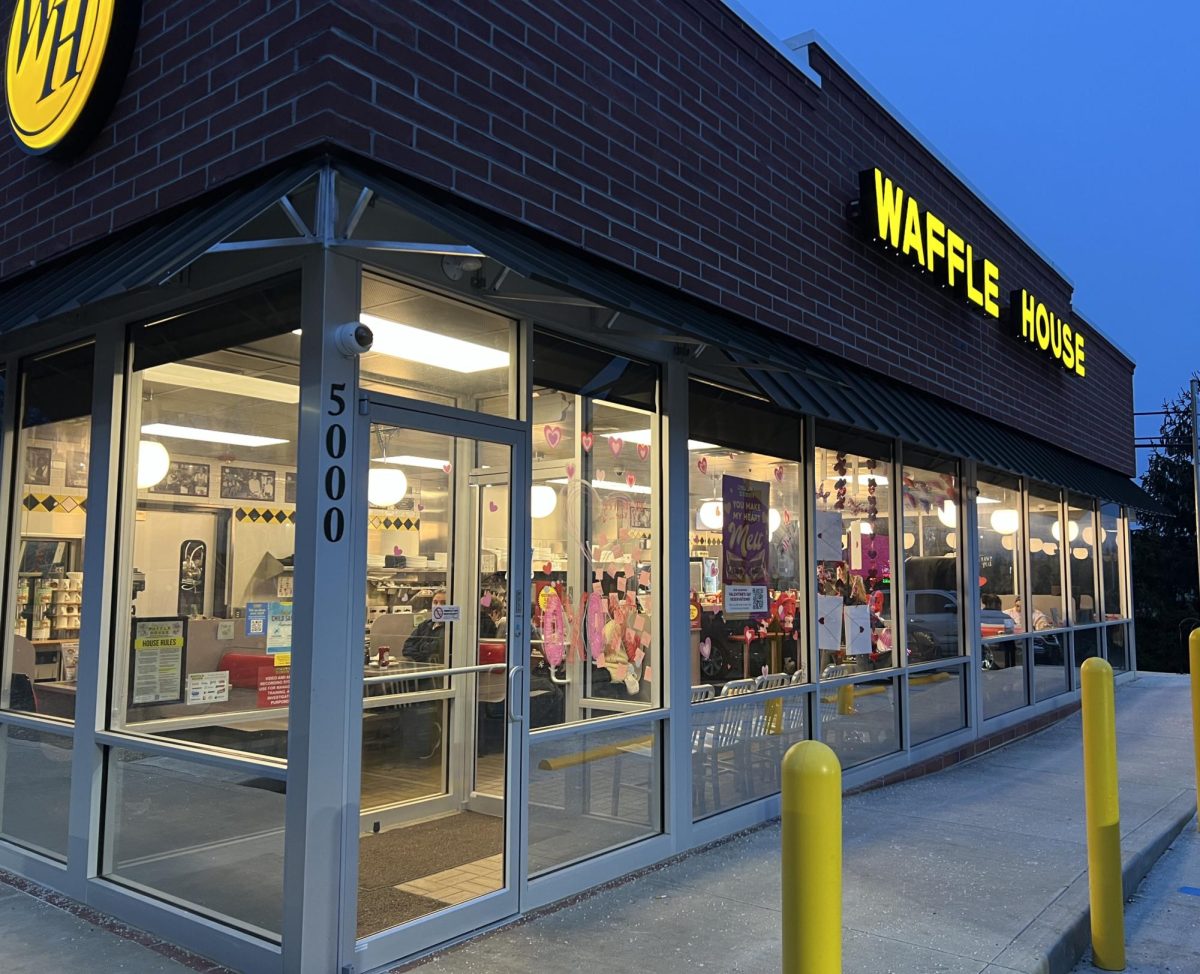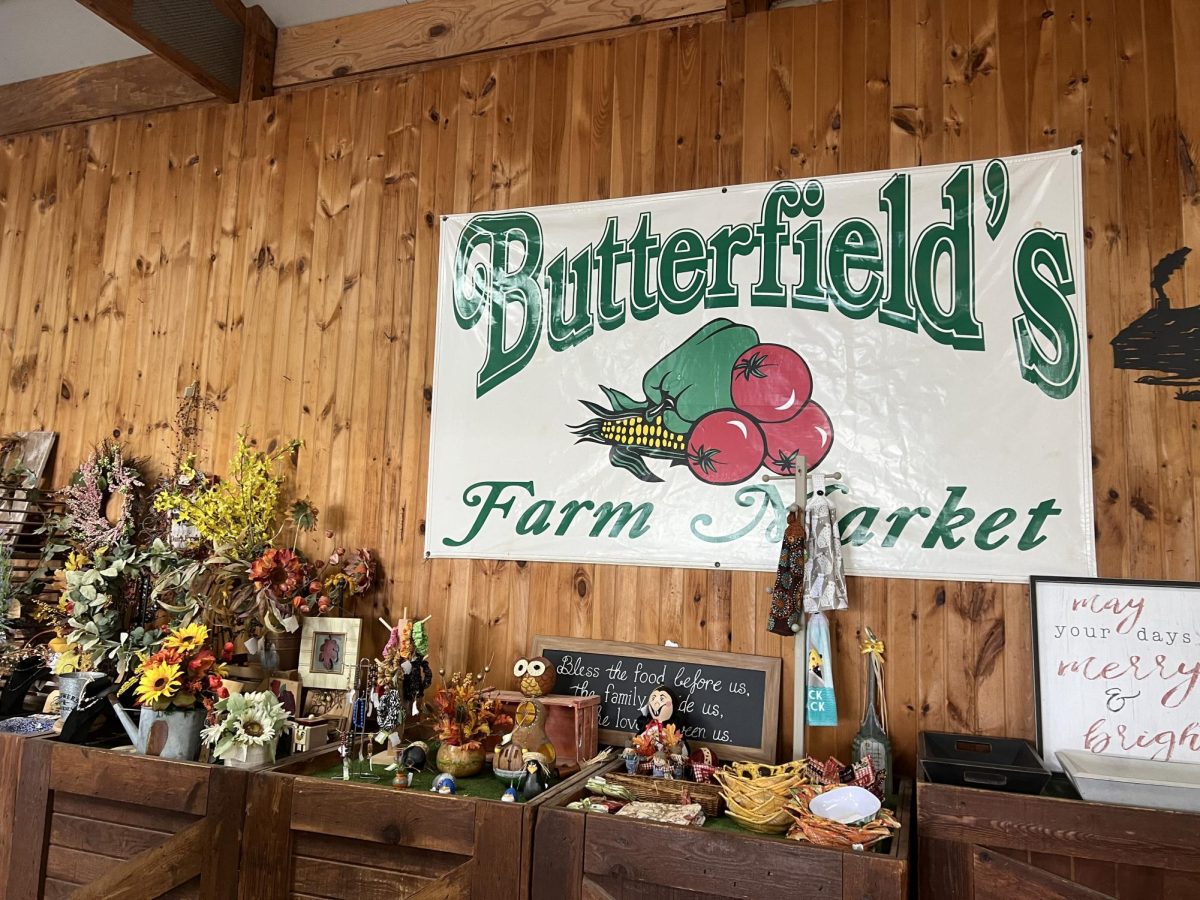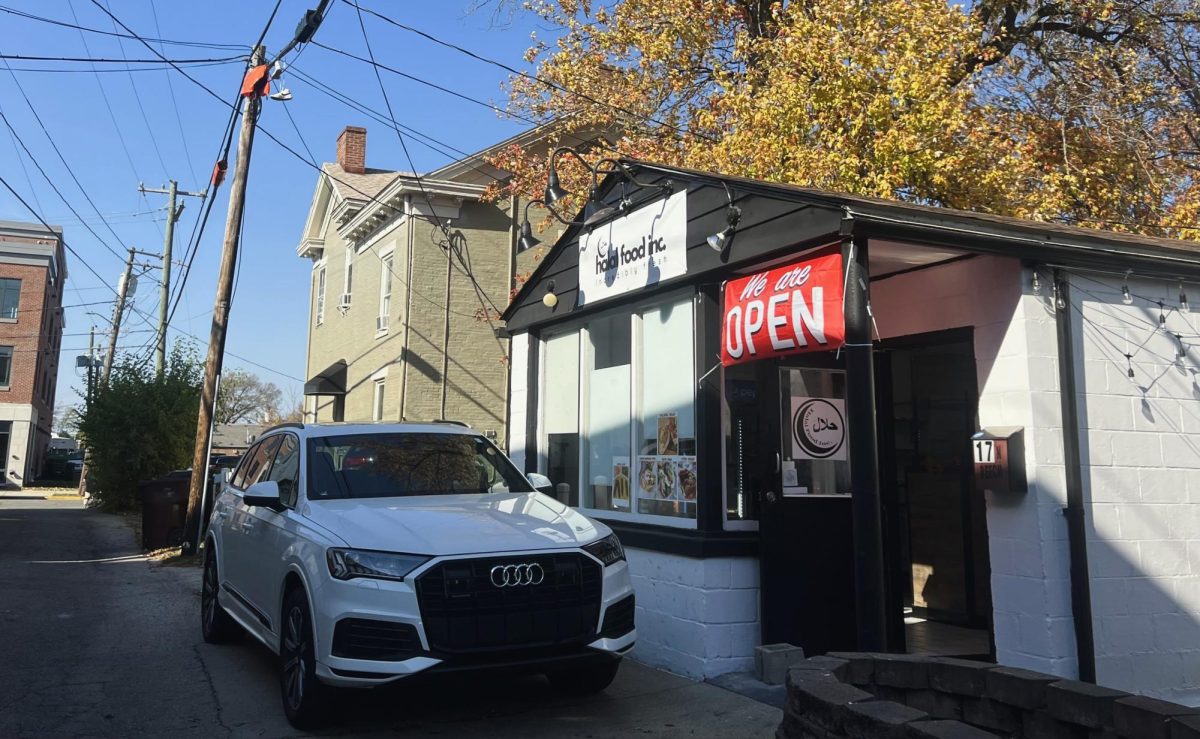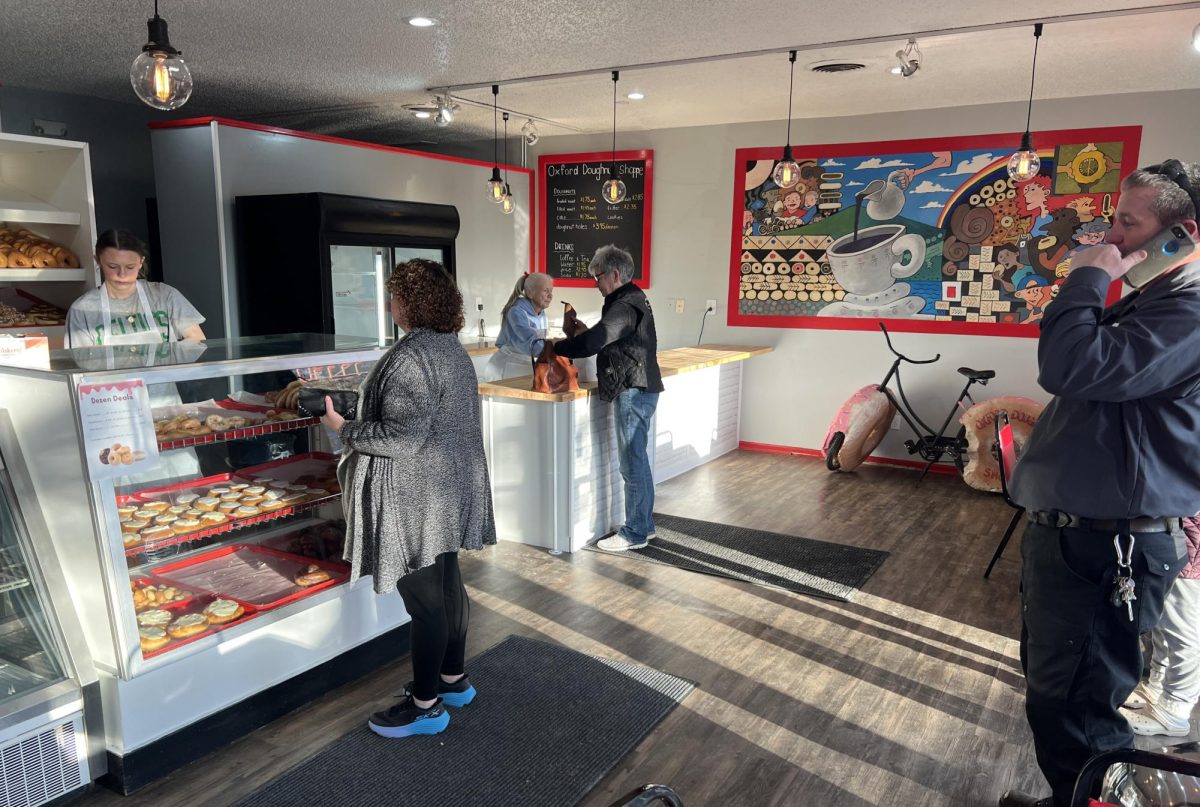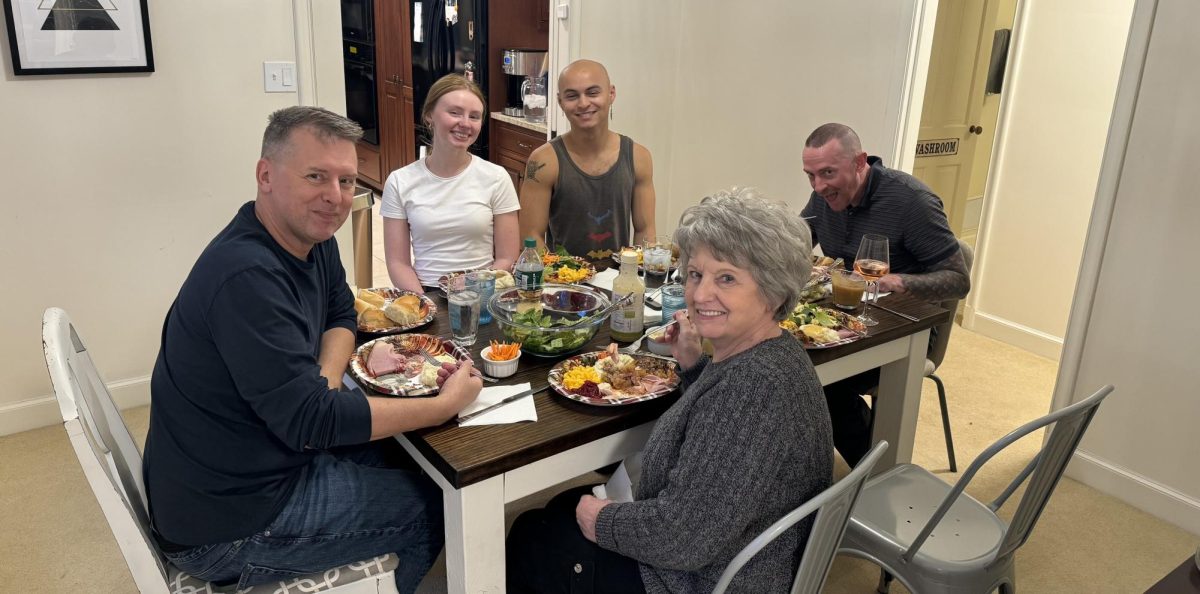Nestled in a corner of the Tollgate Shopping Mall courtyard, the MOON Co-Op offers fresh produce, natural foods and healthy ready-to-eat meals from local producers to promote sustainable lifestyles.
The idea for a convenient place for Oxford consumers and producers to buy and sell fresh, local products originated in the 1990s from the Oxford Organic Network and local Ohio Ecological Food and Farm Association chapter after they combined to form the Miami Oxford Organic Network, aka MOON.
A group of 10 local farmers from the MOON chapter formed a sort of “buyers’ club” to “get food to themselves,” according to former board member and local farmer, Harv Roehling.
Before the co-op existed, the group convened at churches, homes or warehouses every four weeks to pick up organic foods from a large semi-truck.
“There were obvious limitations,” said Roehling. This system was generally inconvenient because organic products could only be picked up once a month and were not always locally produced.
“MOON grew out of that,” he said. The goal was to provide a location for the Oxford community to have access to local and organic foods, which, at the time, could not be found at Kroger.
Seasonal Produce, Soups and Smoothies
Roehling himself sells lettuce to MOON. “That’s the beautiful thing about it,” he said. “Local farmers can sell to the co-op and local customers can buy at the co-op”.
Though member-owners receive discounts when making purchases at the co-op, it serves the general Oxford public as well.
Upon entering the store, well-stocked shelves and overflowing baskets boast an abundance of local, in-season produce like apples and squash.
In-season vegetables like cucumbers and eggplants grace the refrigerated shelves behind the café-style round tables in the corner.
The menu above the deli bar advertises made-to-order smoothies, “grab and go” meal options and a variety of daily soups like stuffed bell pepper or creamy pumpkin.
On the left side of the store, grocery aisles lined with shelves of organic peanut butters, artisan breads, self-serve nuts, grains and sweets, natural pet shampoo and other locally made products capture the attention of browsing customers.
The far-right corner of the store hides an office, where the co-op’s new general manager, Elizabeth Weed, has run the operation for the last four months.
Her past management skills and natural food expertise bring sustainable living options from a local garden, the kitchen of an Oxford baker or the pasture of a near-by farmer to the people of Oxford.
A Passion for Living Green
Before coming to Ohio, she grew up on the Gulf Coast of Florida, and her interest in natural foods stemmed from her childhood.
“I was raised this way,” she said. Her green ideologies and passion for natural foods exemplifies the local, sustainable values of the co-op.
During the 2008 economic crash, she took her recently acquired psychology degree and found a job at Jungle Jim’s International Market to be near her family in Cincinnati.
Jungle Jim’s is a huge supermarket, with locations in Fairfield and Eastgate, known for its incredible size and product selection, including international foods, wines, produce and more.
Weed worked her way up through the company to become a department manager and senior buyer of natural foods.
After ten years at the super-store, “I had done all that I could do,” she said.
While looking for other opportunities, Weed discovered the open manager position at MOON Co-Op.
“It was meant to be” she warmly stated.
According to Weed, her psychology degree “translates over to retail,” helping her analyze buying habits and presentation methods to increase sales.
Her knowledge and initiative led her to spearhead her kombucha bar project at Jungle Jim’s, which took three years to launch.
Kombucha is a fermented tea full of probiotics and vitamins that can be kegged and bottled like beer.
She concocted the idea after observing western food trends originating in areas like California. Natural foods tend to be “bigger out west,” she noted.
According to Weed, Ohio usually adapts to the trends “10-15 years after the West Coast.”
When considering the popularity of sustainable eating, Weed said, “Right now, we’re in a low to mid peak in sustainable food trends.”
Her enthusiasm for kombucha followed her to MOON Co-Op, and the store sells three local brands: Skinny Piggy Kombucha and Fab Ferments out of Cincinnati and Hidden Pond Farm in Centerville, Indiana.
Strong Links to Local Suppliers
Weed called the relationship between their local producers and Oxford consumers “hyper-micro-local.”
“When shopping local, people often don’t know how local their food is. The producers are the makers, bakers and creators,” she said.
All of MOON’s products have humble local origins before arriving to the shelves of the co-op.
Only a 45-minute drive from Oxford, located in Centerville, Indiana, one of MOON’s kombucha producers, Hidden Pond Farm, specializes in fermented foods like kombucha, kimchi, sauerkraut, beets and tonics as well as pasture-fed beef and pork.
The farm’s owners, Andy and Beverly McDowell, combined their knowledge of low-input agriculture and their passion for sustainable foods to bring natural, healthy products to local consumers.
“It’s the fastest growing niche in co-ops and health food stores because it’s the niche that has been most left behind,” said Andy, referring to their traditional fermentation process that modern pasteurization replaced 100 years ago.
“This niche,” Beverly said, “is advancing as people are becoming more aware of their microbiomes and the importance of microbes.”
Besides health, the couple emphasized the importance of low-impact production on environment. Andy mentioned that most people consider the consequences of air pollution; however, “soil is the most abused ecological system on the planet,” he said.
Hidden Pond Farms uses a rotational grazing method to promote lush forage growth. This method contrasts to modern farming methods, which, according to Andy, use petroleum-based fertilizers and become increasingly toxic to the environment.
The couple’s passion for sustainability and local food production encourages them to promote their lifestyle to others, and their connection with the community allows them to “build a lot of relationships with local people,” such as the customer base at MOON.
Similarly, Allyson Moore, owner of Chubby Bunny Bakery, has been selling her vegan and gluten free products at the co-op since 2012.
Like the McDowell’s, Moore began her career as a local producer at the Oxford Farmer’s Market.
At the market, a representative from MOON Co-Op discovered Moore’s baked goods and wanted to sell her products. According to Moore, “This gave me the confidence to pursue Jungle Jim’s.”
Chubby Bunny Bakery now sells at Jungle Jim’s and MOON, as well as the Kofenya coffee shop and Miami University markets.
A Customer Base of Students and Locals
When considering her relationship with local consumers, Moore mentioned that Oxford residents and Miami students share equal enthusiasm for her natural products.
“Oxford people really care about what they eat and the quality of their food,” she said.
Weed also commented on students’ excitement towards sustainability and noted Oxford’s unique position because it’s home to Miami University and its students.
She believes that students who try to live sustainable lifestyles here in Oxford have the potential to bring substantial changes to their future workplaces and share their lifestyles with other communities after they leave school.
“They won’t be here forever,” she said. “Their choices after college could have a huge impact.”
MOON is open 9 a.m.-8 p.m., Monday-Saturday; and 10 a.m.-6 p.m., Sunday.
The co-op has member-owner meetings once a month and hosted an annual meeting on Oct. 7th to discuss the plans for the year.


